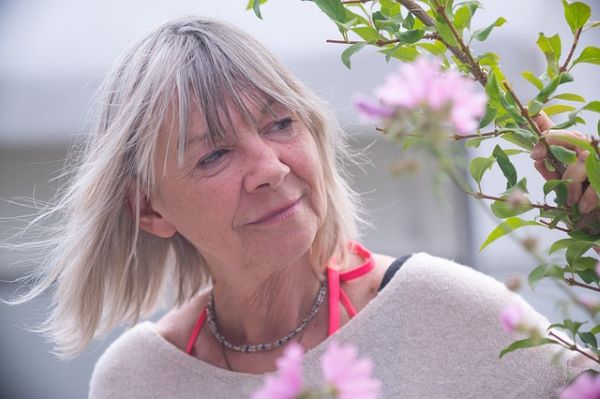As we age, our skin undergoes numerous changes that can affect its texture, appearance, and overall health. Older adults often experience dryness, irritation, and an increased risk of skin cancer due to a combination of factors such as hormonal changes, reduced oil production, and prolonged sun exposure over the years. Understanding how to care for aging skin is essential for maintaining its health and preventing various skin issues. In this article, we will explore effective skin care strategies for older adults, focusing on preventing dryness, irritation, and skin cancer.
Also, read: Now Know Oral Health for Seniors: Maintaining Dental Hygiene and Preventing Issues
Understanding Changes in Aging Skin
Before diving into skin care tips, it’s important to understand the changes that occur in the skin as we age:
- Decreased Oil Production: As we age, our skin produces less oil, leading to dryness and flakiness. This reduction in oil can make the skin more susceptible to irritation and damage.
- Thinning Skin: The dermis, the layer of skin beneath the surface, thins over time, making it more fragile and less resilient. This can lead to increased sensitivity and a higher likelihood of bruising.
- Loss of Elasticity: Collagen and elastin, proteins responsible for skin firmness and elasticity, diminish with age. This loss can result in sagging skin and the formation of wrinkles.
- Increased Sun Damage: Years of sun exposure can lead to pigmentation changes, including age spots and uneven skin tone, as well as an increased risk of skin cancer. (Source)
Skin Care Tips for Older Adults
To maintain healthy skin and prevent common issues, consider incorporating the following skin care practices into your daily routine:
- Moisturize Regularly: Keeping the skin hydrated is crucial for preventing dryness. Use a high-quality moisturizer that contains ingredients like hyaluronic acid, glycerin, or ceramides, which help to attract and retain moisture. Apply moisturizer immediately after bathing to lock in hydration.
- Gentle Cleansing: Choose mild, fragrance-free cleansers that won’t strip the skin of its natural oils. Avoid hot water, as it can further dry out the skin. Instead, use lukewarm water and limit bathing time to prevent excessive dryness.
- Sunscreen Protection: Sun exposure is a significant risk factor for skin cancer. Apply a broad-spectrum sunscreen with at least SPF 30 every day, even on cloudy days or when indoors, as UV rays can penetrate windows. Reapply every two hours when outdoors, especially after swimming or sweating.
- Stay Hydrated: Drinking enough water is essential for overall skin health. Aim for at least eight 8-ounce glasses of water daily to help keep the skin hydrated from within.
- Incorporate Antioxidants: Using skin care products that contain antioxidants, such as vitamin C or E, can help protect the skin from environmental damage. These ingredients can also promote a more even skin tone and reduce the appearance of fine lines.
- Regular Exfoliation: Exfoliating helps remove dead skin cells, promoting a brighter and smoother complexion. However, be cautious with exfoliation; choose gentle exfoliants and limit exfoliation to once or twice a week to avoid irritation.
- Avoid Harsh Chemicals: Many anti-aging products contain harsh ingredients that can irritate sensitive skin. Opt for products labeled as hypoallergenic and free from alcohol, parabens, and fragrances.
- Protect Your Lips: The lips are often overlooked in skin care routines but can become dry and chapped. Use a moisturizing lip balm with SPF to protect your lips from sun damage and dryness. (Source)
Identifying and Managing Skin Irritation
Older adults may experience skin irritation for various reasons, including allergic reactions, environmental factors, or underlying medical conditions. Here are some tips for managing skin irritation:
- Identify Triggers: Pay attention to products that may irritate, such as scented soaps or detergents. Opt for gentle, hypoallergenic alternatives.
- Wear Protective Clothing: When outdoors, wear protective clothing, such as long sleeves and wide-brimmed hats, to shield your skin from the sun and irritants.
- Avoid Hot Showers: Hot water can exacerbate skin irritation. Instead, take lukewarm showers and limit shower time to prevent stripping the skin of its natural moisture.
- Use Cool Compresses: For irritated areas, applying a cool compress can soothe discomfort and reduce inflammation. (Source)
Preventing Skin Cancer
Skin cancer is a significant concern for older adults due to cumulative sun exposure over the years. Here are essential prevention tips:
- Regular Skin Checks: Conduct self-examinations of your skin monthly to monitor any changes in moles or the appearance of new spots. Look for asymmetry, irregular borders, or color changes. Report any concerning findings to your healthcare provider.
- Annual Dermatologist Visits: Schedule annual skin examinations with a dermatologist, especially if you have a history of sunburns, fair skin, or a family history of skin cancer.
- Limit Sun Exposure: Avoid direct sunlight during peak hours (10 a.m. to 4 p.m.) when UV rays are strongest. Seek shade whenever possible.
- Be Mindful of Medication Side Effects: Some medications can increase sensitivity to sunlight. Consult with your doctor about any potential side effects and how to protect your skin. (Source)
Conclusion
Caring for aging skin is essential for maintaining overall health and well-being. By understanding the changes that occur with age and adopting effective skin care practices, older adults can prevent dryness, irritation, and skin cancer. Prioritize regular moisturizing, sun protection, and gentle cleansing to keep your skin healthy and radiant as you age.
Investing time and effort into skin care is an invaluable step toward a healthier, happier life. Remember, it’s never too late to start a skin care routine that will enhance your skin’s health and beauty for years to come.





